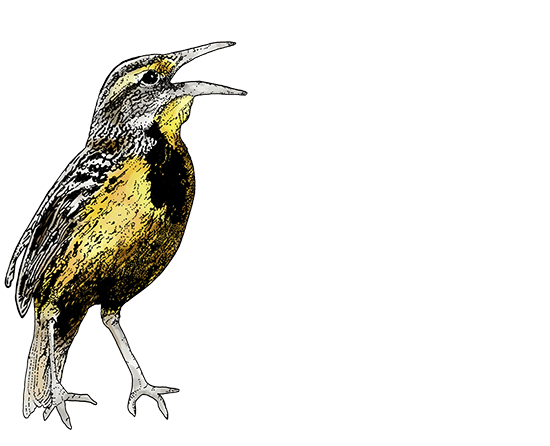Always Room for Rumi
I have appreciated and enjoyed the poetry of Rumi since the mid 1990s. At that point in time, Coleman Barks, an American poet, published his second collection of Rumi’s poetry. In that same year, Bill Moyers interviewed Barks on his PBS series, The Language of Life.
Those events combined produced two unexpected results. First, Rumi became one of the most favorite poets in America, over 700 years after his death. Second, Coleman Barks became the world’s best known translator of Rumi’s work and has been credited with popularizing the writings of Rumi in American culture.
All Things are the Divine
Rumi (aka Jelaluddin Rumi) was born in the 13th century in present day Afghanistan to Persian speaking parents. He was a theologian and follower of Islam’s mystical tradition of Sufism and remains one of the foremost poets in Islamic culture and history. He founded the Mevlevi Dervish Order, also known as the whirling dervishes, and wrote thousands of poems, many of them ecstatic expressions of the Sufi notion that all things can be seen as manifestations of the divine.
The writings of Rumi are read today in various parts of the world and have been widely translated into many different languages. Therefore, the influence of his universal poetry and prose transcends national borders and ethnic divisions.
Mystical Journey
Coleman Barks path to Rumi’s mystical poetry turns out to be a fascinating story in itself. In the mid 1970s, Mr. Barks was attending Robert Bly’s annual Great Mother conference. Bly is a fellow American poet and writer. Also, along with being one of the founders of the men’s mytho-poetic movement, he is known for his versions of poetry written by Kabir, a well-known Indian mystic poet from the 15th century.
Release the Poems from their Cages
As Barks put it, “At that point he (Bly) had been reading translations of Rumi, and he had a stack of these that he gave to me, and he said in his Lutheran Minnesota accent, “These poems need to be released from their cages.” And so I began doing that, just on my own for seven years.” In 1984, Barks published his first collection of Rumi’s poetry, Open Secret: Versions of Rumi. About ten years later, he published another collection of Rumi’s poetry and wound up in the spotlight which gained a newfound appreciation for Rumi’s universal message of connecting with the Divine through the heart.
To Coin a Phrase
Until recently, I thought that Barks had actually translated the works of Rumi. However, that turns out not to be the case. Apparently, he paraphrased Rumi’s poetry into more contemporary language, based upon translations by Rumi scholars. To be honest, I don’t mind the paraphrasing and contemporizing of Rumi because it has made his work much more accessible to myself as a modern poet and songwriter. I am happy to have been inspired by Bark’s versions of Rumi’s work, as they have connected me more deeply with the Divine Mystery.
Found in Second Translation
Here’s an excerpt of an interview with Coleman explaining more of his “translation” process.
I was surprised to learn that you don’t speak Persian. How do you “translate” Rumi’s work, then?
I depend upon scholarly translations and living scholars to give me word-for-word translations, and then I work with the English, trying to be as faithful as possible to the images that come through the words and the spiritual information coming through those images. But I don’t try to reproduce any of the musicality of the Persian. I translate it into American free verse.
So the word “translator” doesn’t exactly describe what you do?
It’s often called a second translation. Someone brings it from the source language sort of halfway to a literal translation and then someone else takes it from that stage to a poem in the English language. Scholarly translations don’t try to do that.
How did you get involved in working with Rumi’s poetry?
Every day I would sit with A.J. Arberry’s translations trying to feel the interior of the poems and to rephrase them. I never thought of publishing them. I just let them pile up. And seven years later, I showed some to Kabir Helminski up at Threshold Books in Putnam, Vt., and he published a little book called “Open Secret,” which won the Pushcart Writers Choice award. That little book has sold more copies every year since 1984.
Source: http://www.sfgate.com/living/article/Coleman-Barks-foremost-Rumi-translator-talks-2537796.php#photo-2668156
Great Night of Rumi
For the past eighteen years, Dale Zola has co-produced with her husband, Dan, spoken word events called The Great Night of Rumi and The Great Night of Soul Poetry. In 1999, she also released an album of songs that were musical interpretations of Rumi’s poetry, as “translated” by Coleman Barks. The album’s title is The Breeze at Dawn.
Source: https://dalezola.com/dales-songs/
Come, Come Whoever You Are
Around 2005, Dena and I attended a Great Night of Rumi in Sebastopol and that’s where I first heard songs from the album, as performed live. I was so moved by the music that night I had to buy the CD. My favorite track on the album is titled, Come, Come Whoever You Are. One line of the song sums it all up for me; “Though you have broken your vows a thousand times, come, come again, come.”
Here’s another great tune from Dale Zola’s beautiful album, The Breeze at Dawn. It’s titled, What is the Soul?
One Inspired Tune Deserves Another
After hearing Come, Come Whoever You Are and carrying it around in my heart for over ten years, I was finally compelled to write a new song with Dale’s song as the chorus. I created the verses based on versions by Coleman Barks of a few different Rumi poems. I’m grateful for my willingness to listen to inspiration when it calls me.
To hear a demo recording of my new song, click here.
May you always enjoy your own connection to the Beloved.
Other source: Wikipedia

